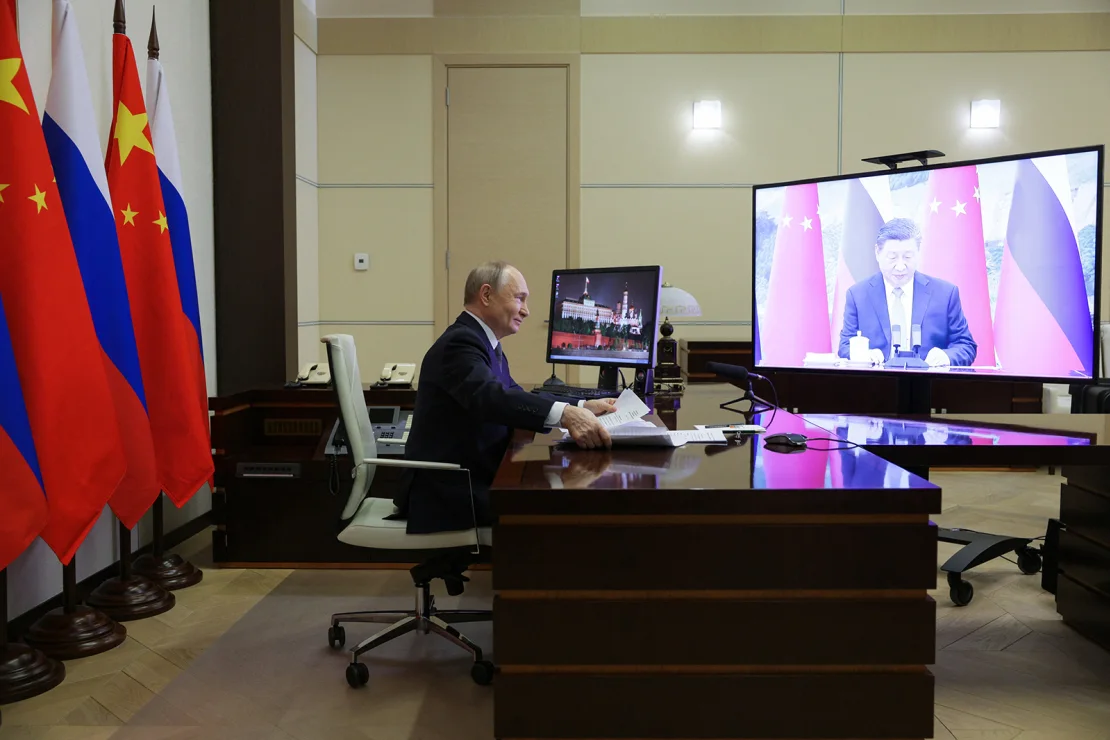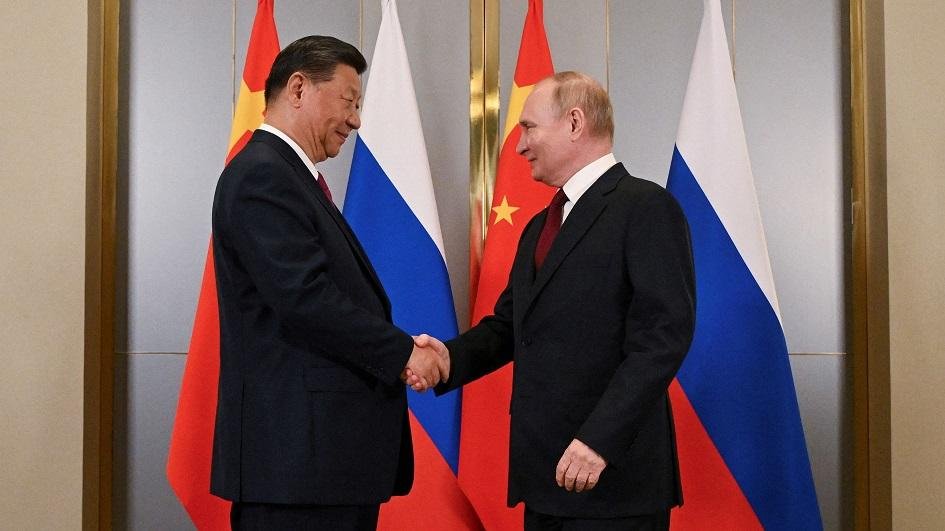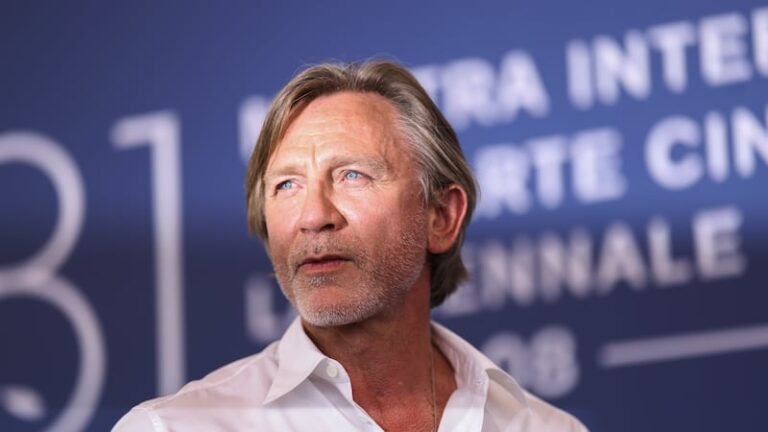The two leaders have made it an annual tradition to speak around the new year – a feature of a close personal rapport that’s helped cement a partnership between their countries that’s only grown as Putin wages war on Ukraine.
Xi expressed his readiness to “guide China-Russia relations to a new height” and respond to “external uncertainties” with the “stability and resilience of China-Russia ties,” a readout from China’s Foreign Ministry said.
The two countries should deepen “strategic coordination” and “practical cooperation” and “firmly support each other,” Xi told the Russian president, who appeared via video link on a large screen in Beijing’s Great Hall of the People during the conference call.
The call between the two autocrats comes as both closely watch Trump’s return to the White House.
The newly sworn-in American president has signaled interest in meeting or negotiating with both leaders early in his presidency. Since taking office, however, he’s also continued to threaten China with imminent tariffs and made some of his most critical comments of Putin to date, as he seeks an end to Russia’s assault on Ukraine.
In a social media post Wednesday, Trump threatened that if Russia’s “ridiculous war” in Ukraine did not end soon he would slap “high levels of taxes, tariffs, and sanctions” on Russian products being sold in the US. It’s unclear, however, what impact any further measures could have, given years of hefty sanctions from the Biden administration and US allies already straining the Russian economy.
A reset in relations
Both Putin and Xi have each publicly suggested a hope to reset fraught relations with the US under the new administration.
Xi and Trump held their call Friday ahead of the inauguration, where Xi advocated a “new starting point” for advancing US-China relations.
The conversation touched on a range of topics including the war in Ukraine, Trump later said, calling it a “very good” call.
Xi told Putin about that phone call during the two leaders’ more than hour-and-a-half conversation Tuesday, according to Kremlin aide Yury Ushakov, who added that the timing of the Xi-Putin call was unrelated to Trump’s inauguration.
“Issues of the two countries’ relations with the United States were also raised,” he said. “In this context, the leaders, naturally, discussed certain aspects of the development of potential contacts with the US administration,” Ushakov said, according to Russian state news agency TASS.
Putin in his remarks to Xi also hailed the countries’ expanding trade – which Chinese data show hit a record high last year – and alluded to their shared ambitions to reshape a global order they see as unfairly dominated by the United States.
“We stand united in advocating for a more just multipolar world order and work to ensure indivisible security both in the Eurasian space and globally,” Putin said, according to a Kremlin readout. Moscow and Beijing’s joint efforts “objectively play a major stabilizing role in international affairs,” he claimed.

A diplomatic triangle?
Trump has also suggested he hopes Xi can use his sway to play a role in brokering an end to that conflict, noting that he urged the Chinese leader during their recent call to “get it settled.”
European leaders have long hoped that Xi could play a role in bringing Putin around to accepting Ukraine’s peace terms, but the entrance of Trump into the White House and his stated drive to end the war adds new potential for China to play a role.
That could set up a delicate balancing act for Beijing. Xi has long sought to portray China as a potential peace broker in the conflict, even as the US and its allies have accused Beijing of propping up the Russian war effort with the export of dual-use goods, which Beijing denies. Xi is also seen to be keen to build a good rapport with Trump to avert potentially damaging tariffs at a time of economic weakness in China.
But the Chinese leader will also likely want to be careful not to damage his partnership with Russia. Xi and Putin inked a “no limits” partnership weeks before Putin’s invasion and Xi sees his Russian counterpart as a critical partner among broader frictions with the West.
Neither the readout from the Kremlin nor China’s Foreign Ministry specified whether the war in Ukraine was discussed during Tuesday’s call between Putin and Xi.
Instead, both readouts referred to the 80th anniversary of the allied victory shared by Beijing and Moscow in World War II. Xi and Putin had each invited the other to commemorate that victory together this year, with events in Russia in May and China in September, the Kremlin said Tuesday.
CNN’s Betsy Klein, Matthew Chance, Anna Chernova, and Fred He contributed to this report.
This story has been updated with additional information.














